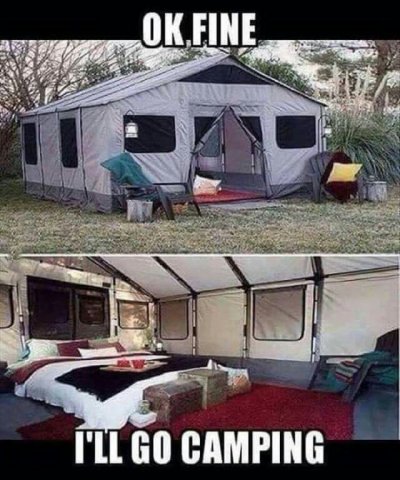Sunset
Give me a museum and I'll fill it. (Picasso) Give me a forum ...
I have only tented.
Friends of mine have a pop-up and they use to tent a lot, but as they got older than 40, they found the popup was nice.
After a day of hiking around to be able to return to the campsite and sit at a table.
Personally, just having one with a toilet inside would be heaven compared to a tent.
Friends of mine have a pop-up and they use to tent a lot, but as they got older than 40, they found the popup was nice.
After a day of hiking around to be able to return to the campsite and sit at a table.
Personally, just having one with a toilet inside would be heaven compared to a tent.

